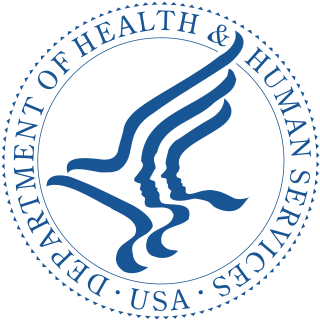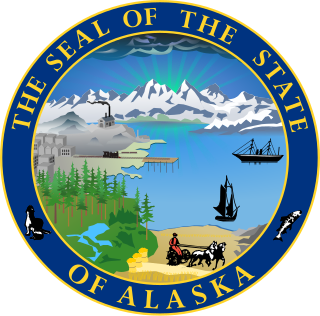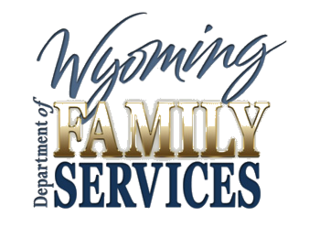
The United States Department of Health and Human Services (HHS) is a cabinet-level executive branch department of the U.S. federal government created to protect the health of the U.S. people and providing essential human services. Its motto is "Improving the health, safety, and well-being of America". Before the separate federal Department of Education was created in 1979, it was called the Department of Health, Education, and Welfare (HEW).
A health department or health ministry is a part of government which focuses on issues related to the general health of the citizenry. Subnational entities, such as states, counties and cities, often also operate a health department of their own. Health departments perform food inspections and other health related inspections, vaccination programs, free STD and HIV tests, tobacco enforcement and cessation programs, and other medical assistance programs. Health departments also compile statistics about health issues within their area. The role of a health department may vary from one country to the other, but their primary objective is always the same; safeguarding and promoting health. In 1986, several of the world's national health departments met to establish an international guideline by which health departments operate. The meeting was in Ottawa, Ontario, Canada, and hence the guidelines established are known as the Ottawa Charter. The Ottawa Charter was designed to 'achieve Health for All'.

Afghan refugees are citizens of Afghanistan who were forced to flee their country as a result of wars, persecution, torture or genocide. The 1978 Saur Revolution followed by the 1979 Soviet invasion marked the first major wave of internal displacement and international migration to neighboring Iran and Pakistan; smaller numbers also went to India or to countries of the former Soviet Union. Between 1979 and 1992, more than 20% of Afghanistan's population fled the country as refugees. Following the Soviet withdrawal in 1989, many returned to Afghanistan, however many Afghans were again forced to flee during the civil war in the 90s. Over 6 million Afghan refugees were residing in Iran and Pakistan by 2000. Most refugees returned to Afghanistan following the 2001 United States invasion and overthrow of the Taliban regime. Between 2002 and 2012, 5.7 million refugees returned to Afghanistan, increasing the country's population by 25%.

The government of Alaska in common with state and federal governments of the United States, has three branches of government: the executive, consisting of the Governor of Alaska and the state agencies; the state legislature consisting of two chambers, the House of Representatives and the Senate; and the judiciary consisting of the Supreme court and lower courts.

The United States recognizes the right of asylum for individuals seeking protections from persecution, as specified by international and federal law. People who seek protection while outside the U.S. are termed refugees, while people who seek protection from inside the U.S. are termed asylum seekers. Those who are granted asylum are termed asylees.

Romaine Henry "Ro" Foege was the Iowa State Representative from the 29th District, representing portions of Linn and Johnson Counties. He was in the Iowa House of Representatives 1996 to 2008. Foege was Director, Iowa Department on Aging 2010-2011.

The government of the City and County of San Francisco utilizes the "strong mayor" form of mayoral/council government, composed of the Mayor, Board of Supervisors, several elected officers, and numerous other entities. It is the only consolidated city-county in California, and one of only thirteen charter counties of California. The fiscal year 2019–20 city and county budget was approximately $12.3 billion.

The Oklahoma Office of Juvenile Affairs (OJA) is an agency of the state of Oklahoma headquartered in Oklahoma City that is responsible for planning and coordinating statewide juvenile justice and delinquency prevention services. OJA is also responsible for operating juvenile correctional facilities in the State.
Health in Afghanistan remains poor but steadily improving. It has been negatively affected by the nation's environmental issues and the decades of war since 1978. The Ministry of Public Health (MoPH) oversees all matters concerning the health of the country's residents. The Human Rights Measurement Initiative finds that Afghanistan is fulfilling 72.5% of what it should be fulfilling for the right to health based on its level of income.

The Wisconsin Department of Corrections (WIDOC) is an administrative department in the executive branch of the state of Wisconsin responsible for corrections in Wisconsin, including state prisons and community supervision. The secretary is a cabinet member appointed by the governor of Wisconsin and confirmed by the Wisconsin Senate.
The Michigan Department of Health and Human Services (MDHHS) is a principal department of state of Michigan, headquartered in Lansing, that provides public assistance, child and family welfare services, and oversees health policy and management.
Marvin Alfred Mottet was a 20th and 21st century Roman Catholic priest in the Diocese of Davenport in the US state of Iowa. He was a noted advocate of social justice causes.

The Arkansas Department of Human Services (DHS) is a state agency of Arkansas, headquartered in Donaghey Plaza South of the Donaghey Complex, a five-story building on the southwest corner of Main Street and 7th Street, in Little Rock.

The Wyoming Department of Family Services is a state agency of Wyoming, headquartered on the third floor of the Hathaway Building in Cheyenne.
The Texas Juvenile Justice Department (TJJD) is a state agency in Texas, headquartered in the Central Services Building (CSB) in Austin.

The Government of Los Angeles County is defined and authorized under the California Constitution, California law, and the Charter of the County of Los Angeles. Much of the Government of California is in practice the responsibility of county governments, such as the Government of Los Angeles County. The County government provides countywide services such as elections and voter registration, law enforcement, jails, vital records, property records, tax collection, public health, health care, and social services. In addition the County serves as the local government for all unincorporated areas.

The Wisconsin Department of Children and Families (DCF) is an agency of the Wisconsin state government responsible for providing services to assist children and families and to oversee county offices handling those services. This includes child protective services, adoption and foster care services, and juvenile justice services. It also manages the licensing and regulation of facilities involved in the foster care and day care systems, performs background investigations of child care providers, and investigates incidents of potential child abuse or neglect. It administers the Wisconsin Works (W-2) program, the child care subsidy program, child support enforcement and paternity establishment services, and programs related to the federal Temporary Assistance to Needy Families (TANF) income support program.
The Office of Refugee Resettlement (ORR) is a program of the Administration for Children and Families, an office within the United States Department of Health and Human Services, created with the passing of the United States Refugee Act of 1980. The Office of Refugee Resettlement offers support for refugees seeking safe haven within the United States, including victims of human trafficking, those seeking asylum from persecution, survivors of torture and war, and unaccompanied alien children. The mission and purpose of the Office of Refugee Resettlement is to assist in the relocation process and provide needed services to individuals granted asylum within the United States.

The Bureau of Medical Services (BMS) was a unit of the United States Public Health Service (PHS) that existed in two incarnations. The first was one of three principal operating agencies of PHS from 1943 until 1966, while the second was a division of the PHS Health Services Administration from 1973 until 1982. Both incarnations of the bureau had the principal responsibility of operating the PHS hospital system that had been founded in 1789.












